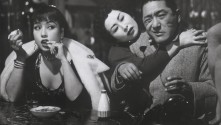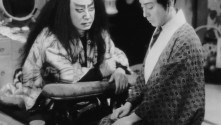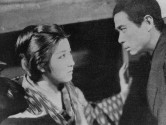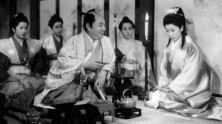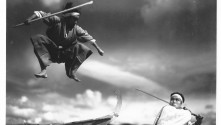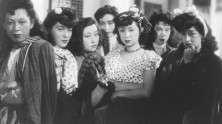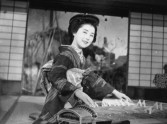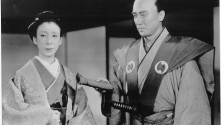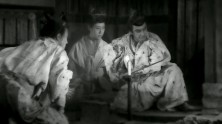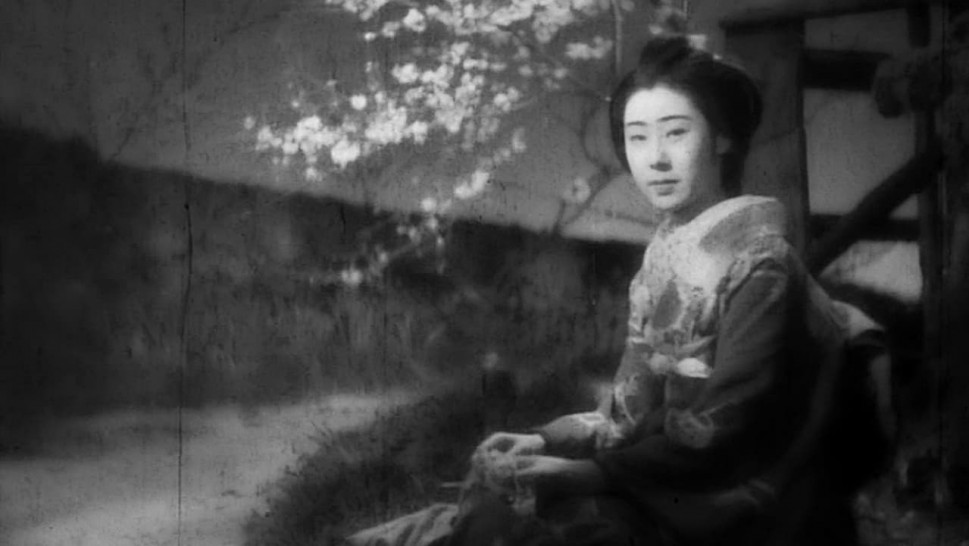
Oyuki the Virgin
(Maria no Oyuki)
With Isuzu Yamada, Komako Hara.
Japan, 1935, 35mm, black & white, 78 min.
Japanese with English subtitles.
Among Mizoguchi’s earliest sound films was this partial adaptation of Guy de Maupassant’s “Boule de suif” (also the inspiration for John Ford’s Stagecoach) which centers around the arresting figure of Oyuki, a spirited small town geisha traveling with one of her kind, and brought together by fate and strange fortune in a stagecoach with an uppity aristocratic family and a shopkeeper and his wife. By its title alone the film (whose literal Japanese title is Oyuki, “the Virgin Mary”) makes clear Mizoguchi’s deep sympathy for the geisha as an emblem of the working class and a lens through which to observe the hypocrisy and venality of the Japanese bourgeoisie. Isuzu Yamada, best known for her work with Kurosawa—and especially her mesmerizing Lady Macbeth in Throne of Blood—brings a tender vulnerability to the young geisha who remains a gentle innocent in the callous, mercenary world described by Mizoguchi’s film. An important stylistic milestone for Mizoguchi, Oyuki the Virgin finds the young director experimenting with longer shots and complexly expressionist deep focus mise-en-scene which clearly shows the influence of Von Sternberg who Mizoguchi had recently met during the American director’s 1936 visit to Japan.





